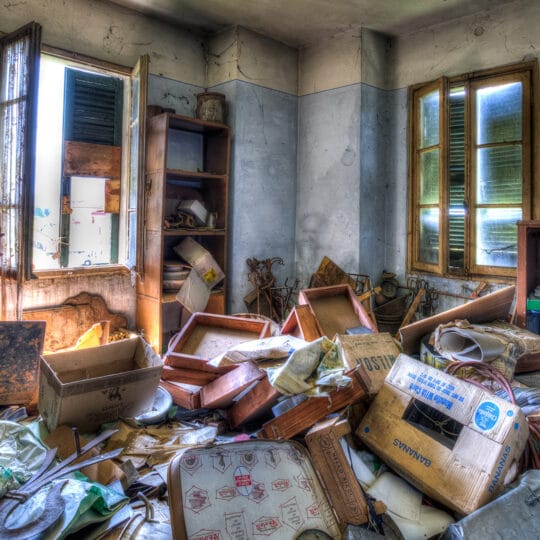9 Reasons Why People Hoard
How to Help Break the Mindset

Hoarding is more than just a collection of too much stuff. The situation typically stems from deeper emotional factors. Learning more about the reasons why people hoard can help determine where the attachment lies and help break the mindset for healthier, safer living arrangements.
Reasons People Hoard
Many can understand how certain items hold sentimental value. It’s also common to hold on to objects when you believe you’ll use it in the future. This makes it harder to part with things around the house. But sometimes this difficulty to discard stuff stems from a deeper psychological need. Hoarding possessions can act as a coping mechanism for past trauma and anxiety. Once it gets to this point, it’s important to seek professional support before the situation becomes a safety hazard.
Here are some of the most common reasons why people hoard belongings:
- Sentimental. From stacks of photo albums to inherited furniture, some items hold more memories than usefulness.
- Security. Stockpiling certain items provides a sense of comfort knowing it’s there when you need it.
- Unique. Certain collector’s items may be irreplaceable.
- Future. If you think you’ll use it eventually, you’re less likely to toss it today.
- Bargain. The pride that comes from a great deal can make it harder to part with it.
- Less waste. When you keep something just because you don’t want to throw it away.
- Indecisive. Decluttering is stressful, which makes it hard to decide what should stay or go.
- Disorganization. More clutter accumulates when things don’t have their proper place.
- Trauma. Experiencing significant life changes can trigger hoarding behavior, especially if there’s a family history or scarcity mindset. Attachment to possessions becomes a coping mechanism.
While there’s no simple cure for hoarding, there are techniques to treat the underlying issues. Therapy and medications can help manage the mental and emotional attachments. Having the support of health professionals, friends, and family is also important to create a safe environment. Once the psychological chain is broken, work can begin to slowly clear the mental and physical clutter.